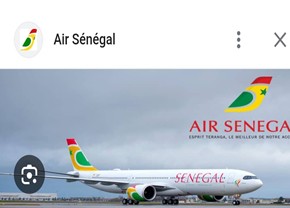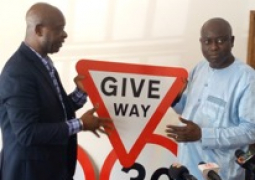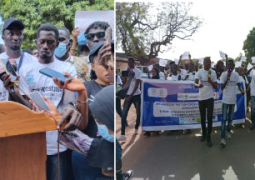
At the center of the controversy: five L410NG aircraft, manufactured by the Czech company Omnipol. These 19-seat planes, little known on the international air market, were acquired under the regime of former President Macky Sall, then sold to Air Senegal for a symbolic franc. The operation, which featured a lavish official reception—in the presence of former Prime Minister Sidiki Kaba, among others—has now proven to be a financial waste with no operational value.
According to Le Témoin, none of these aircraft has been operated commercially to date. Two of them have been grounded for over two years in the hangars of the Yoff military airport. The reason? None of the company's pilots or technicians have been trained to operate them. Even the Air Force, called upon to fill this gap, has been unable to put the aircraft into service.
A third aircraft, although delivered, has still not been accepted for technical reasons, while the other two are still awaited. Uncertainty remains over their arrival, their condition, and their relevance to the company's strategy.
The Senegalese daily describes a procurement process marked by opacity and lack of preparation. "No technical or commercial executive from Air Senegal was involved in the negotiations in Prague. No preliminary study of profitability, maintenance, or fleet integration was conducted," states Le Témoin. The acquisition took place without consulting the company's specialists or field operators, which suggests a purely political decision, detached from any commercial logic.
In February 2024, a crisis meeting was hastily convened to organize the delivery of the aircraft. But this meeting, according to the newspaper's sources, primarily highlighted "the lack of preparation and the total absence of a commercial strategy."
This affair comes at a time when Air Senegal's domestic network is struggling to find a balance, particularly the Dakar–Saint-Louis route. Flights too, often loss-making, are sometimes operated empty or with very few passengers, which increases operating losses. The company, instead of refocusing on profitability, seems weighed down by decisions with far-reaching consequences.
Faced with what some are already calling a state fiasco, Prime Minister Ousmane Sonko has ordered a thorough audit, denouncing a "hasty and unjustified purchase of unusable aircraft." According to him, the aim is to shed light on the political and administrative responsibilities that led to this impasse.
The State Inspectorate General (IGE) has been notified and has begun its investigations, with the aim of determining the conditions under which the contract was awarded, the possible involvement of political officials, and the legality of the disbursements.
Today, the Senegalese authorities no longer rule out the suspension or even termination of the contract between the state and Omnipol. However, such a breach could have diplomatic and financial consequences, particularly if the contractual clauses are binding or if the Czech Republic becomes directly involved in managing the dispute.
Read Other Articles In Headlines



